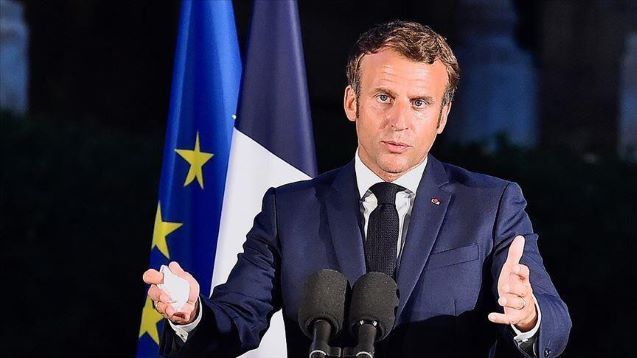The French government has narrowly survived a vote of no-confidence, which was triggered when it forced through an increase in the pension age to 64.
The vote, tabled by centrist MPs, had 278 MPs vote in favour, falling short of the 287 votes needed.
If it had been successful, Emmanuel Macron would have had to name a new government, or call new elections.
A second no-confidence motion, tabled by Marine Le Pen’s far-right National Rally party, also did not pass.
Now both motions have failed, the bill to raise the retirement age from 62 to 64 will become law.
The votes were tabled after Prime Minister Élisabeth Borne used constitutional article 49:3 to push the bill through without a vote last week.
The first motion, which had the backing of several left-wing parties including the Green Party and the Socialist Party, was the only one likely to succeed.
When the vote failed, members of the left-wing contingent that voted for the motion held placards reading “continue” and “we’ll meet in the streets”, and shouted that the prime minister should resign.
“Nothing is solved, we’ll continue to do all we can so this reform is pulled back,” hard-left LFI parliamentary group chief Mathilde Panot said.
Since then, thousands have taken to the streets of France in protest.
A tense debate on the motions started at 16:00 (15:00 GMT) in the National Assembly, with members of the opposition booing and jeering Ms Borne when she took to the podium.
The prime minister said that the government “has never gone so far to form a compromise” to pass the law.
Boris Vallaud from the Socialist Party, who backed the centrist the no-confidence vote, called on the government to “withdraw” the pension reform or “submit it to the vote of the French people”.
Mr Macron has argued that France’s ageing population makes the current pension scheme unaffordable. But that is not a sentiment shared by all in parliament.
The author of the first no-confidence votes, Charles de Courson, said removing the government was “the only way of stopping the social and political crisis in this country”.
France’s Republican party holds 61 seats, and last week their leader, Eric Ciotti, said they would not support the no-confidence motions.
Mr Ciotti said the decision to invoke the clause was “a result of many years of political failures” that demonstrated “a profound crisis in our constitution”, but he did not believe the vote of no-confidence was the solution.
The decision to use 49:3 has angered many in France, with protesters clashing with police at the weekend over the reforms. Thousands lit fires around the country and some threw firecrackers at police.__BBC.com





